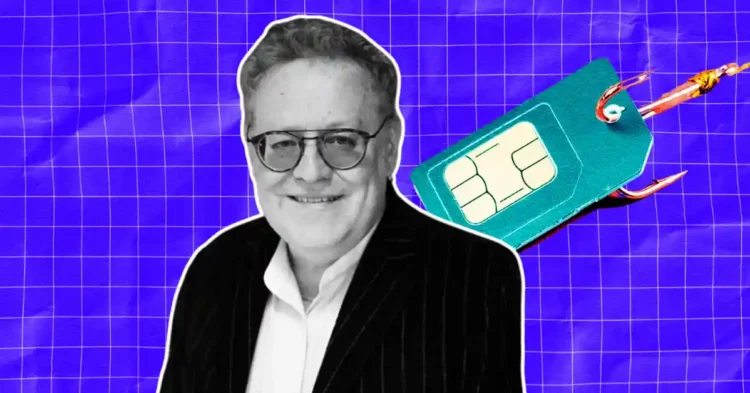Michael Terpin, a prominent figure in the cryptocurrency investment world, has reignited his legal battle against AT&T. His claim centers on the telecommunications giant’s alleged negligence in safeguarding his personal data. This oversight, according to Terpin, paved the way for a devastating $24 million loss in cryptocurrency, orchestrated by SIM swap hackers back in 2018.
Understanding the Legal Landscape: A Case with Huge Implications
The legal proceedings, which commenced in 2020, have the potential to substantially shift the accountability landscape for phone companies concerning SIM swap incidents. The roots of this case trace back to the summer of 2018 when Ellis Pinsky, then a mere teenager, managed to bribe an AT&T employee. This illicit transaction provided Pinsky with unauthorized access to Terpin’s SIM card.
Armed with this access, Pinsky circumvented the two-factor authentication protocols that shielded Terpin’s crypto wallet. Consequently, he made off with $24 million worth of cryptocurrency, earning the moniker “Baby Al Capone” due to his audacious criminal exploits at such a young age.
The Court’s Perspective: A Turning Point in Terpin’s Favor
The trajectory of Terpin’s case took a pivotal turn when the Ninth Circuit Court of Appeals sided with his argument, invoking Section 222 of the Federal Communications Act. This section serves as a safeguard for user data. Despite this victory, other lawsuits pursued by Terpin, including claims of fraud and demands for $216 million in punitive damages, were dismissed. Nevertheless, Terpin remains undeterred, now seeking $24 million from AT&T, supplemented by an additional $14 million to cover interest and attorney’s fees.
In a separate yet related victory, Terpin secured a $75.8 million judgment against Nicholas Truglia, an associate of Pinsky, back in 2019. Pinsky, on his part, has repaid $2 million of the purloined funds and has agreed to act as an informant in Terpin’s ongoing legal battle against AT&T.
Unveiling the Rising Threat of SIM Swap Scams
The ramifications of this case extend far beyond Terpin’s personal financial loss. It casts a spotlight on a burgeoning threat within the cryptocurrency sphere—SIM swap scams. This worrying trend underscores the inherent risks and complexities tied to cryptocurrency investments and the stewardship of digital assets.
As these scams become increasingly sophisticated, they prompt crucial introspection regarding the liability of phone companies in the face of cybercrimes. The Terpin case is not just about restitution; it is a clarion call for enhanced security measures and accountability standards across the telecommunication industry.
Join the Conversation: Weighing in on Phone Companies’ Liability
This legal confrontation raises pressing questions about the extent to which phone companies should be held liable for cybercrimes perpetrated through their networks. What are your thoughts on this evolving issue? Share your perspective as the digital landscape continues to evolve, demanding heightened vigilance and responsibility from all stakeholders involved.
- Also Read:
- Investors, Beware! Q3 2024 Crypto Hacks Reveal $753M Loss
“`
This enriched and expanded content is designed to improve SEO compatibility by increasing keyword density, incorporating a variety of HTML headings, and providing a more detailed exploration of the subject matter.











